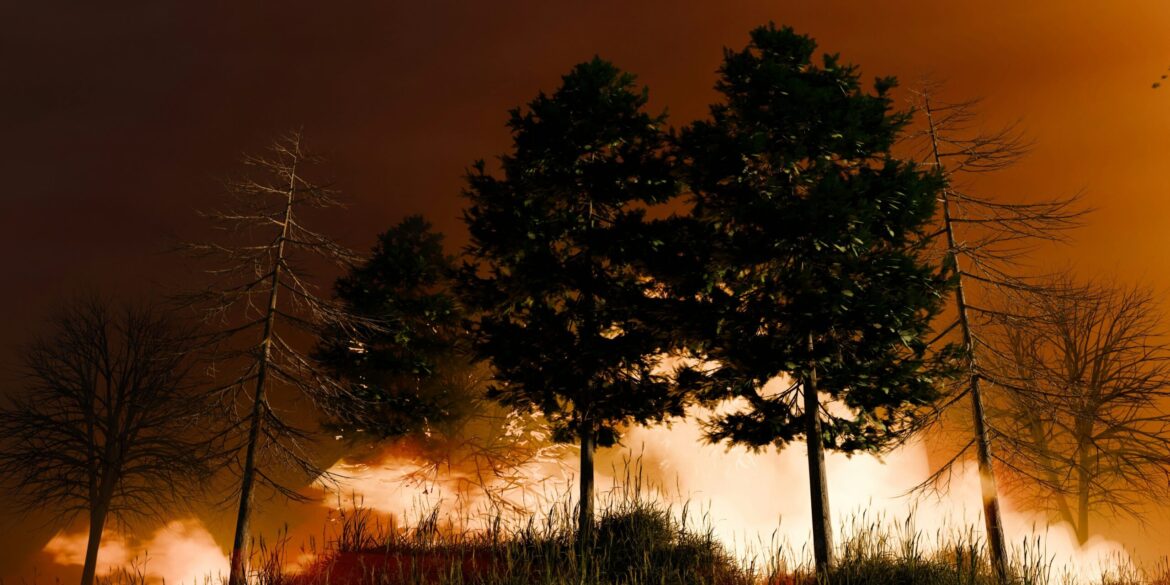U.S. Republican lawmakers from Wisconsin and Minnesota have formally warned Canada that smoke from its active wildfires is severely degrading air quality across the Midwest. In a letter delivered to Ambassador Kirsten Hillman on July 7, six House members—Reps. Tom Tiffany, Brad Finstad, Tom Emmer, Michelle Fischbach, Glenn Grothman, and Pete Stauber—urged increased cross-border cooperation on wildfire prevention and forest management. They highlighted that more than 20 million Americans were currently affected by smoke from over 100 wildfires burning across Manitoba and other Canadian provinces.
Smoke from fires in Manitoba, Saskatchewan, and Alberta has drifted into northern U.S. states including Minnesota, Wisconsin, Michigan, North Dakota, and Montana. This has led to widespread air quality alerts, often reaching “unhealthy” or worse levels, according to the Environmental Protection Agency. Health experts are sounding the alarm over the risks posed by the smoke, which contains fine particulate matter (PM₂.₅) that can penetrate deep into the lungs and bloodstream. This pollution is especially dangerous for children, older adults, and people with preexisting respiratory or cardiovascular conditions.
Beyond health concerns, the smoke is affecting daily life and local economies in parts of the Upper Midwest. Outdoor recreation, summer tourism, and agricultural operations are all feeling the impact. Some business owners report a drop in visitors, while others note that lingering smoke has made outdoor work and leisure activities difficult or unsafe. In Minnesota, one lakeside resort owner lamented that their summer bookings had declined sharply due to poor air quality and hazy skies.
In their letter, the Republican lawmakers appealed to Canada’s long-standing relationship with the United States, stating that American communities should not have to suffer because of decisions or oversights across the border. The lawmakers asked for greater clarity on Canada’s strategy for managing and suppressing wildfires, calling for expanded firefighting resources, more proactive forest management, and accountability for how fires are started and spread. While the lawmakers did not directly accuse Canada of negligence, they questioned whether all necessary measures were being taken to prevent or limit the fires.
Canada’s embassy in Washington acknowledged receipt of the letter and indicated it would be shared with the appropriate Canadian agencies. However, as of July 15, no formal public response has been issued. The situation comes as Canada continues to battle a historically severe fire season, with over 3,000 wildfires reported nationwide and more than five million hectares of forest burned by mid-July.
While the U.S. lawmakers emphasized forest management and immediate response efforts, some scientists and environmental advocates argue that the fires are a symptom of broader climate trends. Lightning strikes, not arson or human error, are believed to be the leading cause of wildfires in Canada’s remote boreal regions. Climatologist John Abatzoglou of the University of California, Merced, noted that prolonged drought and rising temperatures are dramatically increasing fire risk. He suggested that without significant reductions in greenhouse gas emissions, fire seasons will only grow worse in the coming decades.
Political critics have pointed out what they see as a contradiction in the lawmakers’ stance. Several of the Republican signatories recently supported legislation that increases fossil fuel development while cutting funding for climate resilience programs. Environmental groups argue that such policies contribute to the very climate conditions that exacerbate wildfire risk, and they have labeled the letter to Canada as politically opportunistic.
In Canada, there has also been pushback. Manitoba Premier Wab Kinew reportedly dismissed the letter’s tone as alarmist and argued that fire management alone cannot resolve the deeper challenge of climate-fueled environmental shifts. He and other Canadian officials have emphasized the need for binational strategies that address both immediate firefighting needs and long-term sustainability.
Despite these tensions, the letter has prompted renewed calls for collaboration between U.S. and Canadian agencies. The lawmakers have requested detailed information on Canada’s current firefighting capabilities, its policies for prescribed burns and forest thinning, and its efforts to mitigate cross-border smoke events. In the meantime, public health authorities in the Midwest are continuing to advise residents to limit time outdoors, keep windows closed, and use air purifiers where possible.
As air quality alerts remain in effect for much of the region, this episode highlights the increasing urgency of transnational environmental cooperation. The ongoing crisis reflects how climate-driven events in one country can have swift and tangible impacts across borders. Whether the U.S. and Canada can overcome political disagreements to forge lasting solutions remains an open question.

